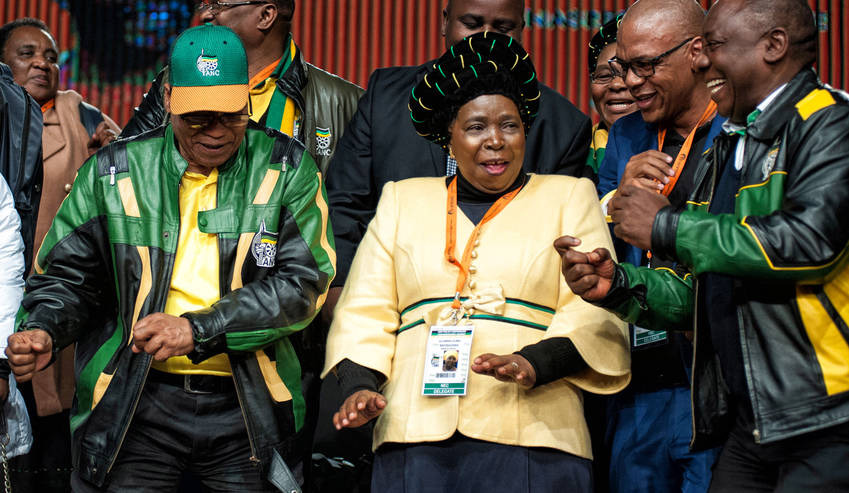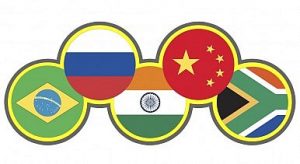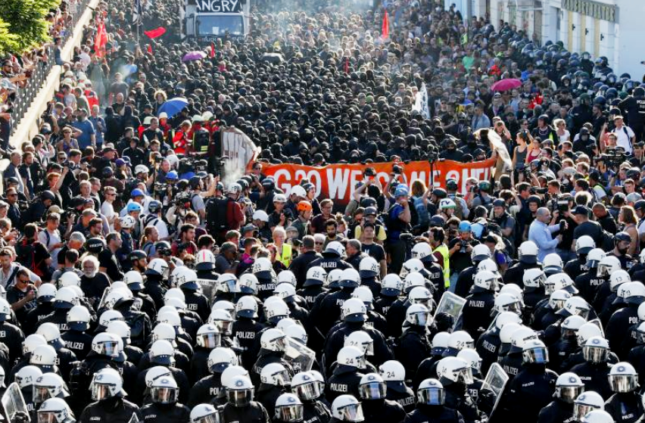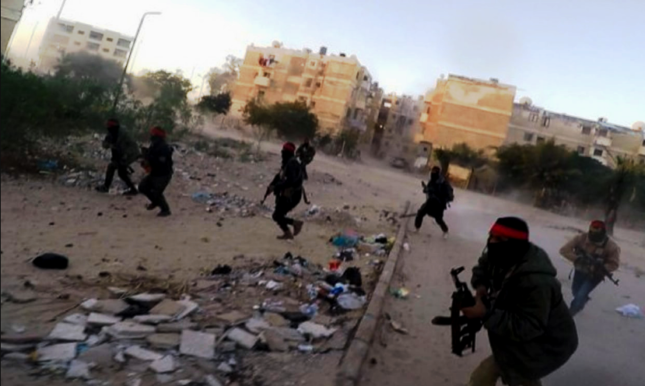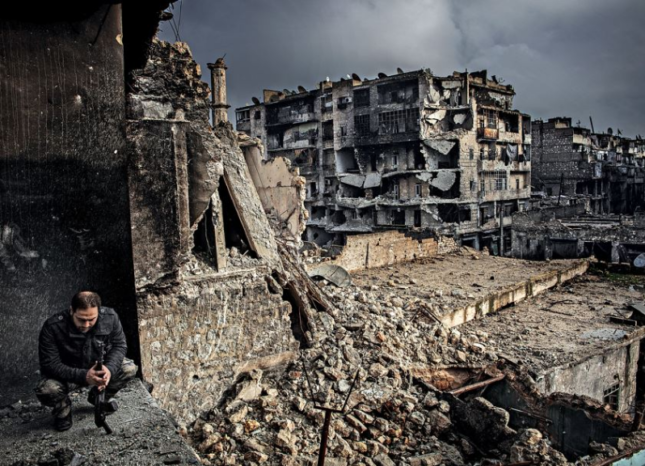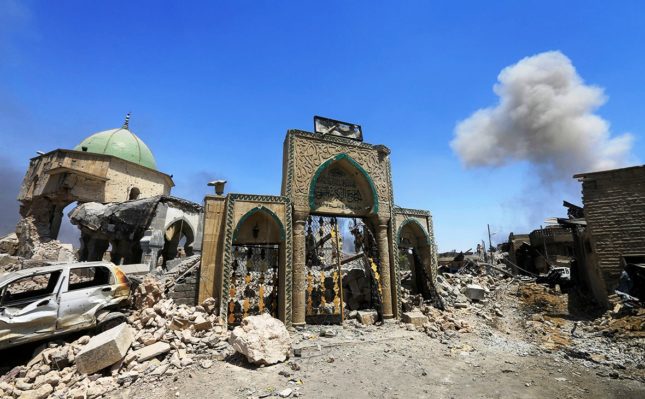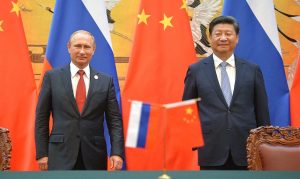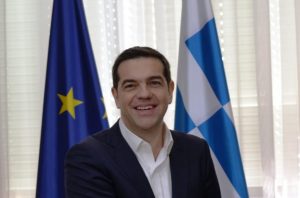This article was originally published on August 9, 2011 (five months after the onslaught of the US-NATO led jihadist insurgency in Daraa, Southern Syria.
Published under the title A “Humanitarian War” on Syria? Military Escalation. Towards a Broader Middle East-Central Asian War? the article raised the role of the terrorist insurgency directed against Syria in relation to the broader issue of an extended Middle East War. “The Road to Tehran Goes Through Damascus”.
War preparations to attack both Syria and Iran were in “an advanced state of readiness” several years prior to the onset of the war on Syria in mid-March 2011.
“The Syria Accountability and Lebanese Sovereignty Restoration Act of 2003 categorizes Syria as a “rogue state”, as a country which supports terrorism. … A US-NATO sponsored war on Iran would involve, as a first step, a destabilization campaign (“regime change”) including covert intelligence operations in support of rebel forces directed against the Syrian government.” ( Michel Chossudovsky, August 2011)
Part II of this article was published under the title The Pentagon’s “Salvador Option”: The Deployment of Death Squads in Iraq and Syria (August 16, 2011). The latter was published as a chapter in The Globalization of War, America’s Long War against Humanity, Global Research, Montreal 2015.
Michel Chossudovsky, July 8, 2017
* * *
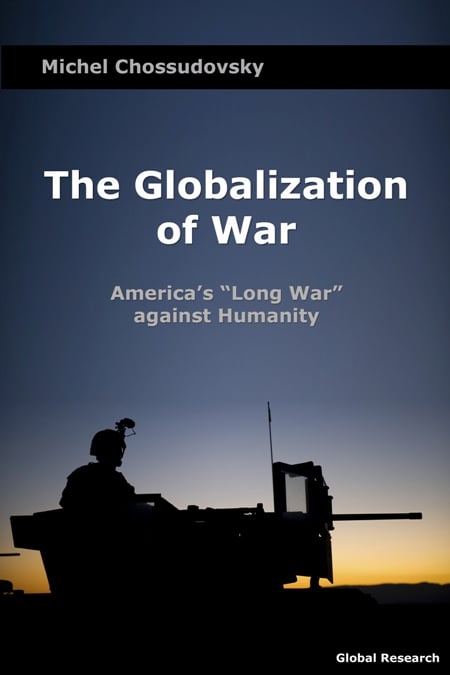 An extended Middle East Central Asian war has been on the Pentagon’s drawing board since the mid-1990s.
An extended Middle East Central Asian war has been on the Pentagon’s drawing board since the mid-1990s.
As part of this extended war scenario, the US-NATO alliance plans to wage a military campaign against Syria under a UN sponsored “humanitarian mandate”.
Click book cover to order directly from Global Research
Escalation is an integral part of the military agenda. Destabilization of sovereign states through “regime change” is closely coordinated with military planning.
There is a military roadmap characterised by a sequence of US-NATO war theaters.
War preparations to attack Syria and Iran have been in “an advanced state of readiness” for several years. The Syria Accountability and Lebanese Sovereignty Restoration Act of 2003 categorizes Syria as a “rogue state”, as a country which supports terrorism.
A war on Syria is viewed by the Pentagon as part of the broader war directed against Iran. President George W. Bush confirmed in his Memoirs that he had “ordered the Pentagon to plan an attack on Iran’s nuclear facilities and [had] considered a covert attack on Syria” (George Bush’s memoirs reveal how he considered attacks on Iran and Syria, The Guardian, November 8, 2010)
This broader military agenda is intimately related to strategic oil reserves and pipeline routes. It is supported by the Anglo-American oil giants.
The July 2006 bombing of Lebanon was part of a carefully planned “military road map”. The extension of “The July War” on Lebanon into Syria had been contemplated by US and Israeli military planners. It was abandoned upon the defeat of Israeli ground forces by Hizbollah.
Israel’s July 2006 war on Lebanon also sought to establish Israeli control over the North Eastern Mediterranean coastline including offshore oil and gas reserves in Lebanese and Palestinian territorial waters.
The plans to invade both Lebanon and Syria have remained on the Pentagon’s drawing board despite Israel’s setback in the 2006 July War:
“In November 2008, barely a month before Tel Aviv started its massacre in the Gaza Strip, the Israeli military held drills for a two-front war against Lebanon and Syria called Shiluv Zro’ot III (Crossing Arms III). The military exercise included a massive simulated invasion of both Syria and Lebanon” (See Mahdi Darius Nazemoraya, Israel’s Next War: Today the Gaza Strip, Tomorrow Lebanon?, Global Research, January 17, 2009)
The road to Tehran goes through Damascus. A US-NATO sponsored war on Iran would involve, as a first step, a destabilization campaign (“regime change”) including covert intelligence operations in support of rebel forces directed against the Syrian government.
A “humanitarian war” under the logo of “Responsibility to Protect” (R2P) directed against Syria would also contribute to the ongoing destabilization of Lebanon.
Were a military campaign to be waged against Syria, Israel would be directly or indirectly involved in military and intelligence operations.
A war on Syria would lead to military escalation.
There are at present four distinct war theaters: Afghanistan-Pakistan, Iraq, Palestine and Libya.
An attack on Syria would lead to the integration of these separate war theaters, eventually leading towards a broader Middle East-Central Asian war, engulfing an entire region from North Africa and the Mediterranean to Afghanistan and Pakistan.
The ongoing protest movement is intended to serve as a pretext and a justification to intervene militarily against Syria. The existence of an armed insurrection is denied. The Western media in chorus have described recent events in Syria as a “peaceful protest movement” directed against the government of Bashar Al Assad, when the evidence confirms the existence of an armed insurgency integrated by Islamic paramilitary groups.
From the outset of the protest movement in Daraa in mid-March, there has been an exchange of fire between the police and armed forces on the one hand and armed gunmen on the other. Acts of arson directed against government buildings have also been committed. In late July in Hama, public buildings including the Court House and the Agricultural Bank were set on fire. Israeli news sources, while dismissing the existence of an armed conflict, nonetheless, acknowledge that “protesters [were] armed with heavy machine guns.” (DEBKAfile August 1, 2011. Report on Hama, emphasis added)
“All Options on the Table”
In June, US Senator Lindsey Graham (who serves on the Senate Armed Services Committee) hinted to the possibility of a “humanitarian” military intervention directed against Syria with a view to “saving the lives of civilians”. Graham suggested that the “option” applied to Libya under UN Secuirty Council resolution 1973 should be envisaged in the case of Syria:
“If it made sense to protect the Libyan people against Gadhafi, and it did because they were going to get slaughtered if we hadn’t sent NATO in when he was on the outskirts of Benghazi, the question for the world [is], have we gotten to that point in Syria, …
We may not be there yet, but we are getting very close, so if you really care about protecting the Syrian people from slaughter, now is the time to let Assad know that all options are on the table,” (CBS “Face The Nation”, June 12, 2011)
Following the adoption of the UN Security Council Statement pertaining to Syria (August 3, 2011), the White House called, in no uncertain terms, for “regime change” in Syria and the ouster of President Bashar Al Assad:
“We do not want to see him remain in Syria for stability’s sake, and rather, we view him as the cause of instability in Syria,” White House spokesman Jay Carney told reporters Wednesday.
“And we think, frankly, that it’s safe to say that Syria would be a better place without President Assad,” (quoted in Syria: US Call Closer to Calling for Regime Change, IPS, August 4, 2011)
Extended economic sanctions often constitute a leadup towards outright military intervention.
A bill sponsored by Senator Lieberman was introduced in the US Senate with a view to authorizing sweeping economic sanctions against Syria. Moreover, in a letter to President Obama in early August, a group of more than sixty U.S. senators called for “implementing additional sanctions… while also making it clear to the Syrian regime that it will pay an increasing cost for its outrageous repression.”
These sanctions would require blocking bank and financial transactions as well as “ending purchases of Syrian oil, and cutting off investments in Syria’s oil and gas sectors.” (See Pressure on Obama to get tougher on Syria coming from all sides – Foreign Policy, August 3, 2011).
Meanwhile, the US State Department has also met with members of the Syrian opposition in exile. Covert support has also been channelled to the armed rebel groups.
Dangerous Crossroads: War on Syria. Beachhead for an Attack on Iran
Following the August 3 Statement by the Chairman of the UN Security Council directed against Syria, Moscow’s envoy to NATO Dmitry Rogozin warned of the dangers of military escalation:
“NATO is planning a military campaign against Syria to help overthrow the regime of President Bashar al-Assad with a long-reaching goal of preparing a beachhead for an attack on Iran,…
“[This statement] means that the planning [of the military campaign] is well underway. It could be a logical conclusion of those military and propaganda operations, which have been carried out by certain Western countries against North Africa,” Rogozin said in an interview with the Izvestia newspaper… The Russian diplomat pointed out at the fact that the alliance is aiming to interfere only with the regimes “whose views do not coincide with those of the West.”
Rogozin agreed with the opinion expressed by some experts that Syria and later Yemen could be NATO’s last steps on the way to launch an attack on Iran.
“The noose around Iran is tightening. Military planning against Iran is underway. And we are certainly concerned about an escalation of a large-scale war in this huge region,” Rogozin said.
Having learned the Libyan lesson, Russia “will continue to oppose a forcible resolution of the situation in Syria,” he said, adding that the consequences of a large-scale conflict in North Africa would be devastating for the whole world. “Beachhead for an Attack on Iran”: NATO is planning a Military Campaign against Syria, Novosti, August 5, 2011)
Military Blueprint for an Attack on Syria
Dimitry Rogozin’s warning was based on concrete information known and documented in military circles, that NATO is currently planning a military campaign against Syria. In this regard, a scenario of an attack on Syria is currently on the drawing board, involving French, British and Israeli military experts. According to former Commander of the French Air Force (chef d’Etat-Major de l’Armée de l’air) General Jean Rannou, “a NATO strike to disable the Syrian army is technically feasible”:
“Nato member countries would begin by using satellite technology to spot Syrian air defences. A few days later, warplanes, in larger numbers than Libya, would take off from the UK base in Cyprus and spend some 48 hours destroying Syrian surface-to-air missiles (SAMs) and jets. Alliance aircraft would then start an open-ended bombardment of Syrian tanks and ground troops.
The scenario is based on analysts in the French military, from the specialist British publication Jane’s Defence Weekly and from Israel’s Channel 10 TV station.
The Syrian air force is said to pose little threat. It has around 60 Russian-made MiG-29s. But the rest – some 160 MiG-21s, 80 MiG-23s, 60 MiG-23BNs, 50 Su-22s and 20 Su-24MKs – is out of date.
….”I don’t see any purely military problems. Syria has no defence against Western systems … [But] it would be more risky than Libya. It would be a heavy military operation,” Jean Rannou, the former chief of the French air force, told EUobserver. He added that action is highly unlikely because Russia would veto a UN mandate, Nato assets are stretched in Afghanistan and Libya and Nato countries are in financial crisis. (Andrew Rettman, Blueprint For NATO Attack On Syria Revealed, Global Research, August 11, 2011)
The Broader Military Roadmap
While Libya, Syria and Iran are part of the military roadmap, this strategic deployment if it were to be carried out would also threaten China and Russia. Both countries have investment, trade as well as military cooperation agreements with Syria and Iran. Iran has observer status in the Shanghai Cooperation Organization (SCO).
Escalation is part of the military agenda. Since 2005, the US and its allies, including America’s NATO partners and Israel, have been involved in the extensive deployment and stockpiling of advanced weapons systems. The air defense systems of the US, NATO member countries and Israel are fully integrated.
The Role of Israel and Turkey
Both Ankara and Tel Aviv are involved in supporting an armed insurgency. These endeavors are coordinated between the two governments and their intelligence agencies.
Israel’s Mossad, according to reports, has provided covert support to radical Salafi terrorist groups, which became active in Southern Syria at the outset of the protest movement in Daraa in mid-March. Reports suggest that financing for the Salafi insurgency is coming from Saudi Arabia. (See Syrian army closes in on Damascus suburbs, The Irish Times, May 10, 2011).
The Turkish government of Prime Minister Recep Tayyib Erdogan is supporting Syrian opposition groups in exile while also backing the armed rebels of the Muslim Brotherhood in Northern Syria.
Both the Syrian Muslim Brotherhood (MB) (whose leadership is in exile in the UK) and the banned Hizb ut-Tahrir (the Party of Liberation) are behind the insurrection. Both organizations are supported by Britain’s MI6. The avowed objective of both MB and Hizb-ut Tahir is ultimately to destabilize Syria’s secular State. (See Michel Chossudovsky, SYRIA: Who is Behind The Protest Movement? Fabricating a Pretext for a US-NATO “Humanitarian Intervention”, Global Research, May 3, 2011).
In June, Turkish troops crossed the border into northern Syria, officially to come to the rescue of Syrian refugees. The government of Bashar Al Assad accused Turkey of directly supporting the incursion of rebel forces into northern Syria:
“A rebel force of up to 500 fighters attacked a Syrian Army position on June 4 in northern Syria. They said the target, a garrison of Military Intelligence, was captured in a 36-hour assault in which 72 soldiers were killed in Jisr Al Shoughour, near the border with Turkey.
“We found that the criminals [rebel fighters] were using weapons from Turkey, and this is very worrisome,” an official said.
This marked the first time that the Assad regime has accused Turkey of helping the revolt. … Officials said the rebels drove the Syrian Army from Jisr Al Shoughour and then took over the town. They said government buildings were looted and torched before another Assad force arrived. …
A Syrian officer who conducted the tour said the rebels in Jisr Al Shoughour consisted of Al Qaida-aligned fighters. He said the rebels employed a range of Turkish weapons and ammunition but did not accuse the Ankara government of supplying the equipment.” (Syria’s Assad accuses Turkey of arming rebels, TR Defence, Jun 25 2011)
Denied by the Western media, foreign support to Islamist insurgents, which have “infiltrated the protest movement”, is, nonetheless, confirmed by Western intelligence sources. According to former MI6 officer Alistair Crooke (and high level EU adviser): “two important forces behind events [in Syria] are Sunni radicals and Syrian exile groups in France and the US. He said the radicals follow the teaching of Abu Musab Zarqawi, a late Jordanian Islamist, who aimed to create a Sunni emirate in Jordan, Lebanon, Palestine and Syria called Bilad a-Sham. They are experienced urban guerillas who fought in Iraq and have outside finance. They infilitrate protests to attack Assad forces, as in Jisr al-Shagour in June, where they inflicted heavy casualties.” (Andrew Rettman, Blueprint For NATO Attack On Syria Revealed, Global Research, August 11, 2011, emphasis added).
The former MI6 official also confirms that Israel and the US are supporting and financing the terrorists: “Crooke said the exile groups aim to topple the anti-Israeli [Syrian] regime. They are funded and trained by the US and have links to Israel. They pay Sunni tribal chiefs to put people on the streets, work with NGOs to feed uncorroborated stories of atrocities to Western media and co-operate with radicals in the hope that escalating violence will justify Nato intervention.” (Ibid, emphasis added).
Political factions within Lebanon are also involved. Lebanese intelligence has confirmed the covert shipment of assault rifles and automatic weapons to Salafi fighters. The shipment was carried out by Saudi-backed Lebanese politicians.
The Israel-Turkey Military Cooperation Agreement
Israel and Turkey have a military cooperation agreement which pertains in a very direct way to Syria as well to the strategic Lebanese-Syrian Eastern Mediterranean coastline (including the gas reserves off the coast of Lebanon and pipeline routes).
Already during the Clinton Administration, a triangular military alliance between the US, Israel and Turkey had unfolded. This “triple alliance”, which is dominated by the US Joint Chiefs of Staff, integrates and coordinates military command decisions between the three countries pertaining to the broader Middle East. It is based on the close military ties respectively of Israel and Turkey with the US, coupled with a strong bilateral military relationship between Tel Aviv and Ankara. ….
The triple alliance is also coupled with a 2005 NATO-Israeli military cooperation agreement which includes “many areas of common interest, such as the fight against terrorism and joint military exercises. These military cooperation ties with NATO are viewed by the Israeli military as a means to “enhance Israel’s deterrence capability regarding potential enemies threatening it, mainly Iran and Syria.” (See Michel Chossudovsky,”Triple Alliance”: The US, Turkey, Israel and the War on Lebanon, August 6, 2006)
Meanwhile, the recent reshuffle within Turkey’s top brass has reinforced the pro-Islamist faction within the armed forces. In late July, The Commander in Chief of the Army and head of Turkey’s Joint Chiefs of Staff, General Isik Kosaner, resigned together with the commanders of the Navy and Air Force.
General Kosaner represented a broadly secular stance within the Armed Forces. General Necdet Ozel has been appointed as his replacement as commander of the Army the new army chief.
These developments are of crucial importance. They tend to support US interests. They also point to a potential shift within the military in favor of the Muslim Brotherhood including the armed insurrection in Northern Syria.
“New appointments have strengthened Erdogan and the ruling party in Turkey… [T]he military power is able to carry out more ambitious projects in the region. It is predicted that in case of using the Libyan scenario in Syria it is possible that Turkey will apply for military intervention.” ( New appointments have strengthened Erdogan and the ruling party in Turkey : Public Radio of Armenia, August 06, 2011, emphasis added)

Muslim Brotherhood Rebels at Jisr al Shughour Photos AFP June 16, 2011
[Note: this photo is in many regards misleading. Most of the rebel gunmen are highly trained with modern weapons.]
The Extended NATO Military Alliance
Egypt, the Gulf states and Saudi Arabia (within the extended military alliance) are partners of NATO, whose forces could be deployed in a campaign directed against Syria.
Israel is a de facto member of NATO following an agreement signed in 2005.
The process of military planning within NATO’s extended alliance involves coordination between the Pentagon, NATO, Israel’s Defense Force (IDF), as well as the active military involvement of the frontline Arab states, including Saudi Arabia, the Gulf States, Egypt: all in all ten Arab countries plus Israel are members of The Mediterranean Dialogue and the Istanbul Cooperation Initiative.
We are at a dangerous crossroads. The geopolitical implications are far-reaching.
Syria has borders with Jordan, Israel, Lebanon, Turkey and Iraq. It spreads across the valley of the Euphrates, it is at the crossroads of major waterways and pipeline routes.
Syria is an ally of Iran. Russia has a naval base in North Western Syria (see map).
Establishment of a base in Tartus and rapid advancement of military technology cooperation with Damascus makes Syria Russia’s instrumental bridgehead and bulwark in the Middle East.
Damascus is an important ally of Iran and irreconcilable enemy of Israel. It goes without saying that appearance of the Russian military base in the region will certainly introduce corrections into the existing correlation of forces.
Russia is taking the Syrian regime under its protection. It will almost certainly sour Moscow’s relations with Israel. It may even encourage the Iranian regime nearby and make it even less tractable in the nuclear program talks.( Ivan Safronov, Russia to defend its principal Middle East ally: Moscow takes Syria under its protection, Global Research July 28, 2006)
World War III Scenario
For the last five years, the Middle East-Central Asian region has been on an active war footing.
Syria has significant air defense capabilities as well as ground forces.
Syria has been building up its air defense system with the delivery of Russian Pantsir S1 air-defense missiles. In 2010, Russia delivered a Yakhont missile system to Syria. The Yakhont operating out of Russia’s Tartus naval base “are designed for engagement of enemy’s ships at the range of up to 300 km”. (Bastion missile systems to protect Russian naval base in Syria, Ria Novosti, September 21, 2010).
The structure of military alliances respectively on the US-NATO and Syria-Iran-SCO sides, not to mention the military involvement of Israel, the complex relationship between Syria and Lebanon, the pressures exerted by Turkey on Syria’s northern border, point indelibly to a dangerous process of escalation.
Any form of US-NATO sponsored military intervention directed against Syria would destabilize the entire region, potentially leading to escalation over a vast geographical area, extending from the Eastern Mediterranean to the Afghanistan-Pakistan border with Tajikistan and China.
In the short run, with the war in Libya, the US-NATO military alliance is overextended in terms of its capabilities. While we do not forsee the implementation of a US-NATO military operation in the short-term, the process of political destabilization through the covert support of a rebel insurgency will in all likelihood continue.
This article was updated on August 11, 2011.
Many of the issues raised in the above article are analyzed in detail in Michel Chossudovsky’s 2011 book:
Towards a World War Three Scenario, The Dangers of Nuclear War
Michel Chossudovsky
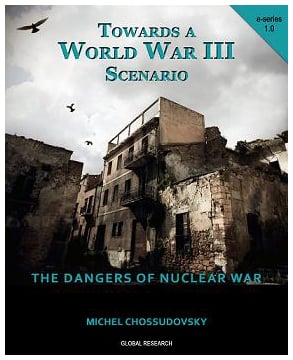
For further details click here
Order your copy of this important new book from Global Research here
DETAILED TABLE OF CONTENTS
PREFACE
A New War Theater in North Africa
Operation Odyssey Dawn
Nuclear Weapons against Libya? How Real is the Threat?
America’s Long War: The Global Military Agenda
How to Reverse the Tide of War
World War III Scenario
Acknowledgments
CHAPTER I: INTRODUCTION
The Cult of Killing and Destruction
America’s Mini-nukes
War and the Economic Crisis
Real versus Fake Crises
CHAPTER II: THE DANGERS OF NUCLEAR WAR
Hiroshima Day 2003: Secret Meeting at Strategic Command Headquarters
The Privatization of Nuclear War: US Military Contractors Set the Stage
9/11 Military Doctrine: Nuclear Weapons and the “Global War on Terrorism”
Al Qaeda: “Upcoming Nuclear Power”
Obama’s Nuclear Doctrine: The 2010 Nuclear Posture Review
Post 9/11 Nuclear Doctrine
“Defensive” and “Offensive” Actions
“Integration” of Nuclear and Conventional Weapons Plans
Theater Nuclear Operations (TNO)
Planned Aerial Attacks on Iran
Global Warfare: The Role of US Strategic Command (USSTRATCOM)
Nuclear Weapons Deployment Authorization
Israel’s Stockpiling of Conventional and Nuclear Weapons
The Role of Western Europe
Germany: De Facto Nuclear Power
Pre-emptive Nuclear War: NATO’s 2010 Strategic Concept
The World is at a Critical Crossroads
CHAPTER III: AMERICA’S HOLY CRUSADE AND THE BATTLE FOR OIL
America’s Crusade in Central Asia and the Middle East
“Homegrown Terrorists”
The American Inquisition
Washington’s Extrajudicial Assassination Program
The Battle for Oil
The Oil Lies in Muslim Lands
Globalization and the Conquest of the World’s Energy Resources
CHAPTER IV: PREPARING FOR WORLD WAR THREE
Media Disinformation
A “Pre-emptive” Aerial Attack Directed Against Iran would Lead to Escalation
Global Warfare
US “Military Aid”
The Timetable of Military Stockpiling and Deployment
World War III Scenario
The United Nations Security Council
The American Inquisition: Building a Political Consensus for War
CHAPTER V: TARGETING IRAN WITH NUCLEAR WEAPONS
Building a Pretext for a Pre-emptive Nuclear Attack
“Theater Iran Near Term”
The Military Road Map: “First Iraq, then Iran”
Simulated Scenarios of a Global War: The Vigilant Shield 07 War Games
The Role of Israel
Cheney: “Israel Might Do it Without Being Asked”
US Israel Military Coordination
Tactical Nuclear Weapons directed against Iran
Radioactive Fallout
“The Mother of All Bombs” (MOAB) Slated to be Used Against Iran
Extensive Destruction of Iran’s Infrastructure
State of the Art Weaponry: “War Made Possible Through New Technologies”
Electromagnetic Weapons
Iran’s Military Capabilities: Medium and Long Range Missiles
Iran’s Ground Forces
US Military and Allied Facilities Surrounding Iran
CHAPTER VI: REVERSING THE TIDE OF WAR
Revealing the Lie
The Existing Anti-War Movement
Manufacturing Dissent
Jus ad Bellum: 9/11 and the Invasions of Yugoslavia and Afghanistan
Fake Antiwar Activism: Heralding Iran as a Nuclear Threat
The Road Ahead
The Antiwar Movement within the State Structure and the Military
Abandon the Battlefield: Refuse to Fight
The Broader Peace Process
What has to be Achieved
Order your copy of this important new book from Global Research here


